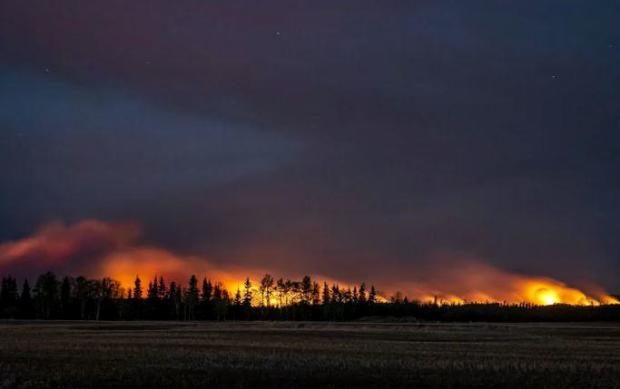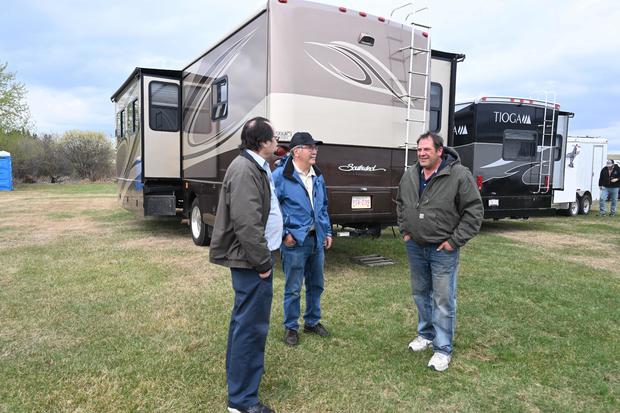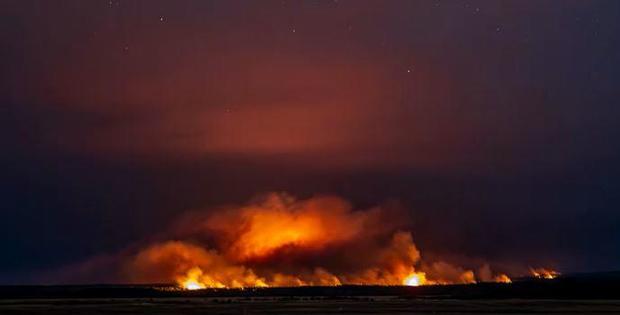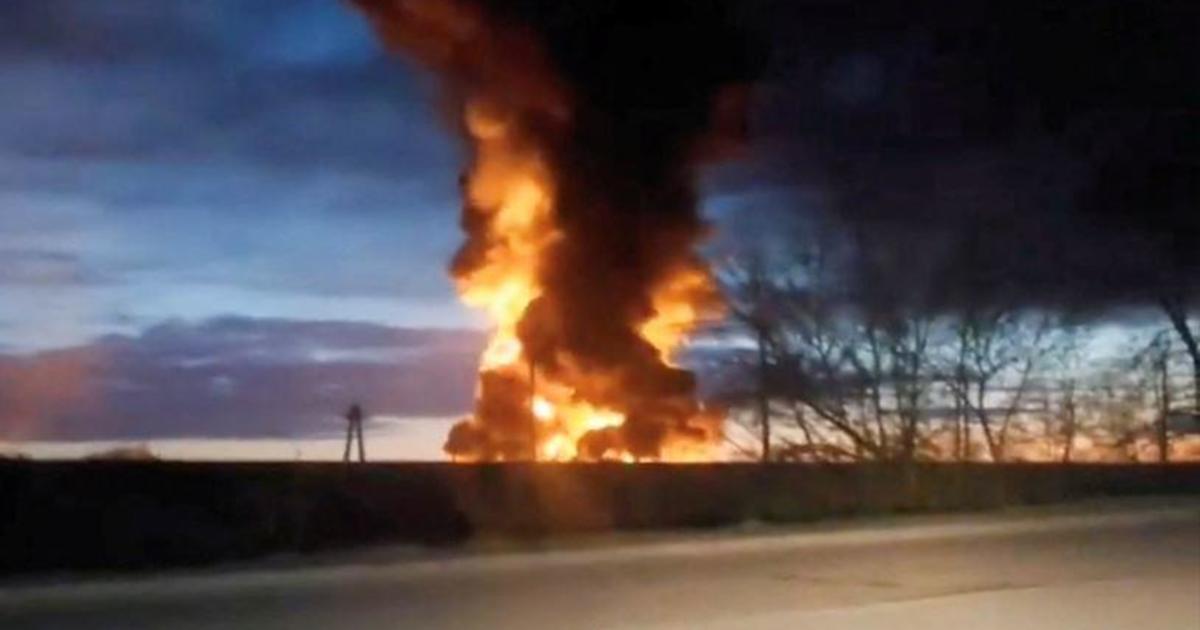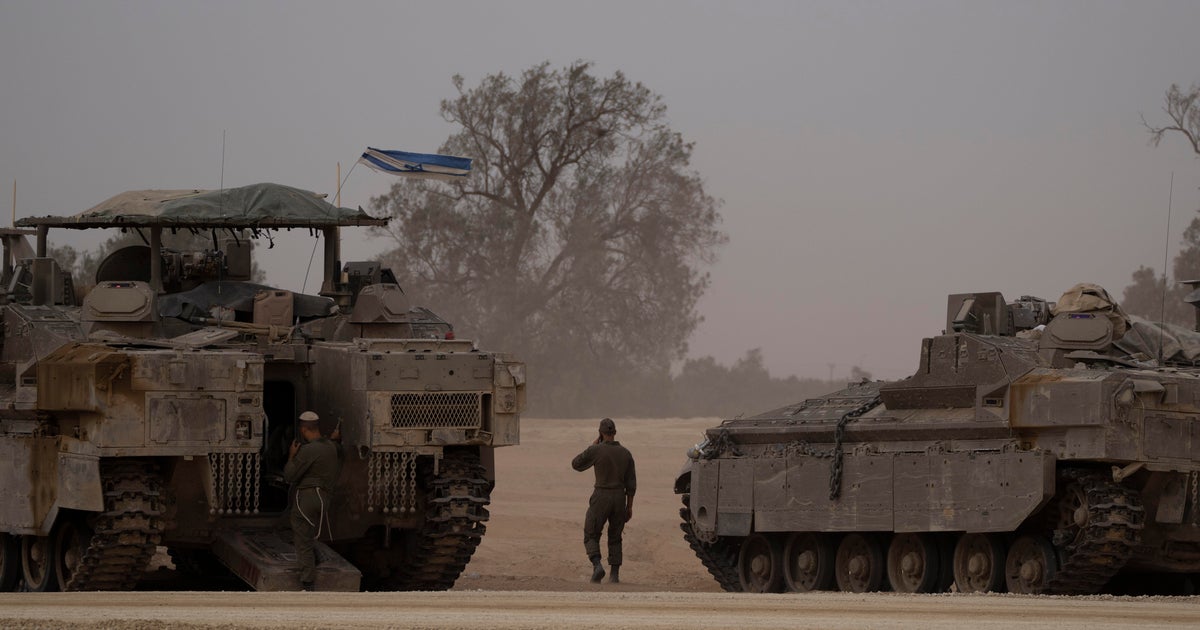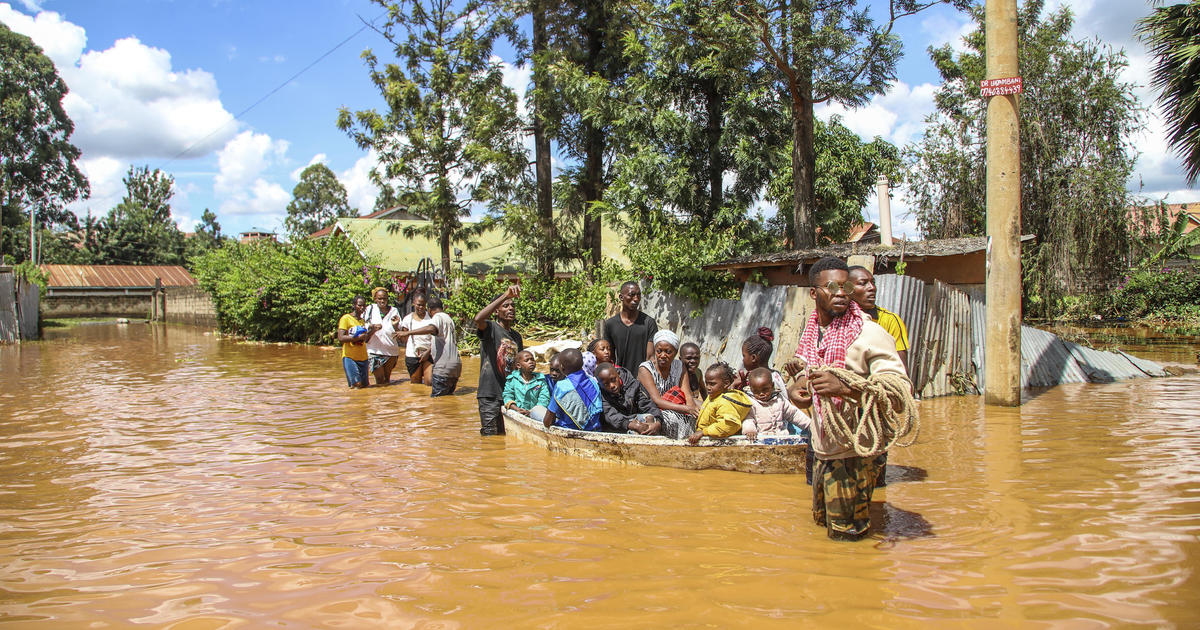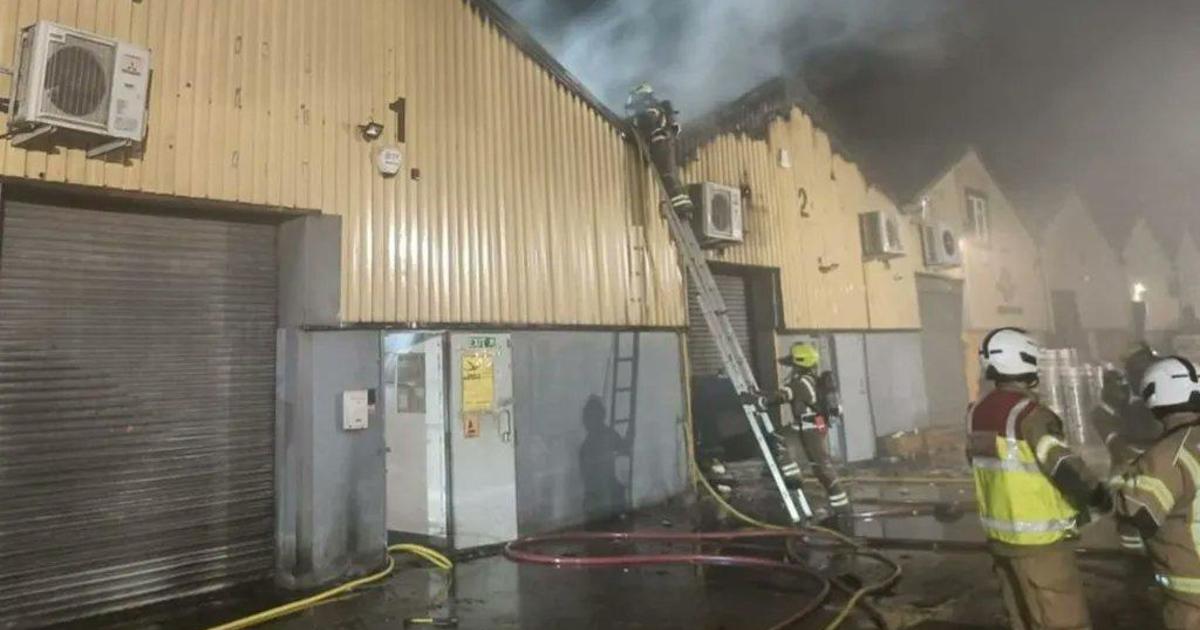Canada wildfires force evacuation of 30,000 in scorched Alberta
Montreal — Western Canada's spreading wildfires prompted fresh evacuation orders on Sunday as authorities registered over 100 active blazes. Around 30,000 people have been told to leave their homes in Alberta, where more than two dozen fires have not yet been brought under control.
Calling the situation "unprecedented," Alberta Premier Danielle Smith declared a state of emergency on Saturday.
The province — one of the world's largest oil-producing regions — "has been experiencing a hot, dry spring and with so much kindling, all it takes is a few sparks to ignite some truly frightening wildfires," she said.
Christie Tucker, a spokesperson with Alberta's wildfire agency, said that "light scattered showers in the southern part of the province" on Sunday allowed firefighters to approach previously unreachable areas due to "extreme wildfire behavior."
Conditions in the north of the province remained very difficult, she added.
"Our priorities today have been and always are wildfires that are threatening communities or human lives."
Alberta Emergency Management chief Colin Blair said that it was difficult to assess the amount of property loss in some areas due to "ongoing smoke and fire conditions."
In northern Alberta's Fox Lake, a massive fire destroyed 20 homes, a store and a police station, and some residents had to be evacuated by boat and helicopter.
Two out-of-control wildfires in neighboring British Columbia prompted people to leave their homes, with authorities warning that they expect high winds to push the blazes higher in the coming days.
In recent years, western Canada has been hit repeatedly by extreme weather.
Forest fires in Canada's oil sands region in 2016 disrupted production and forced out 100,000 residents from Fort McMurray, pummeling the nation's economy.
More recently in 2021, westernmost British Columbia province suffered record-high temperatures over the summer that killed more than 500 people, as well as wildfires that destroyed an entire town.
That was followed by devastating floods and mudslides.
